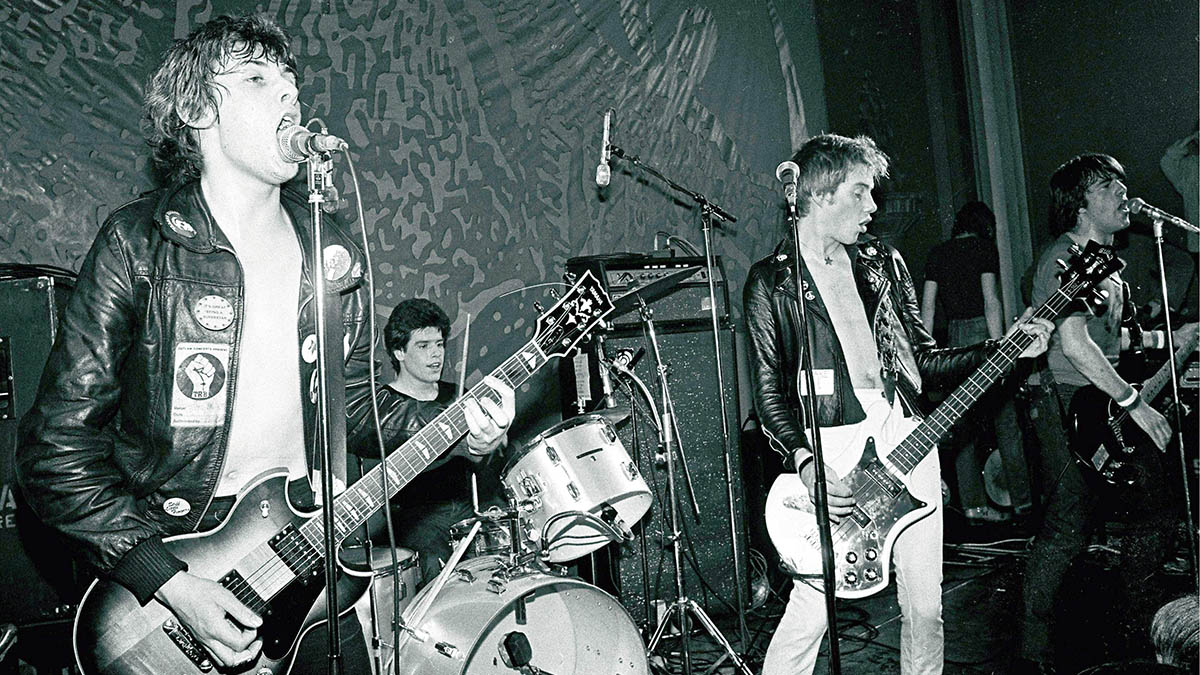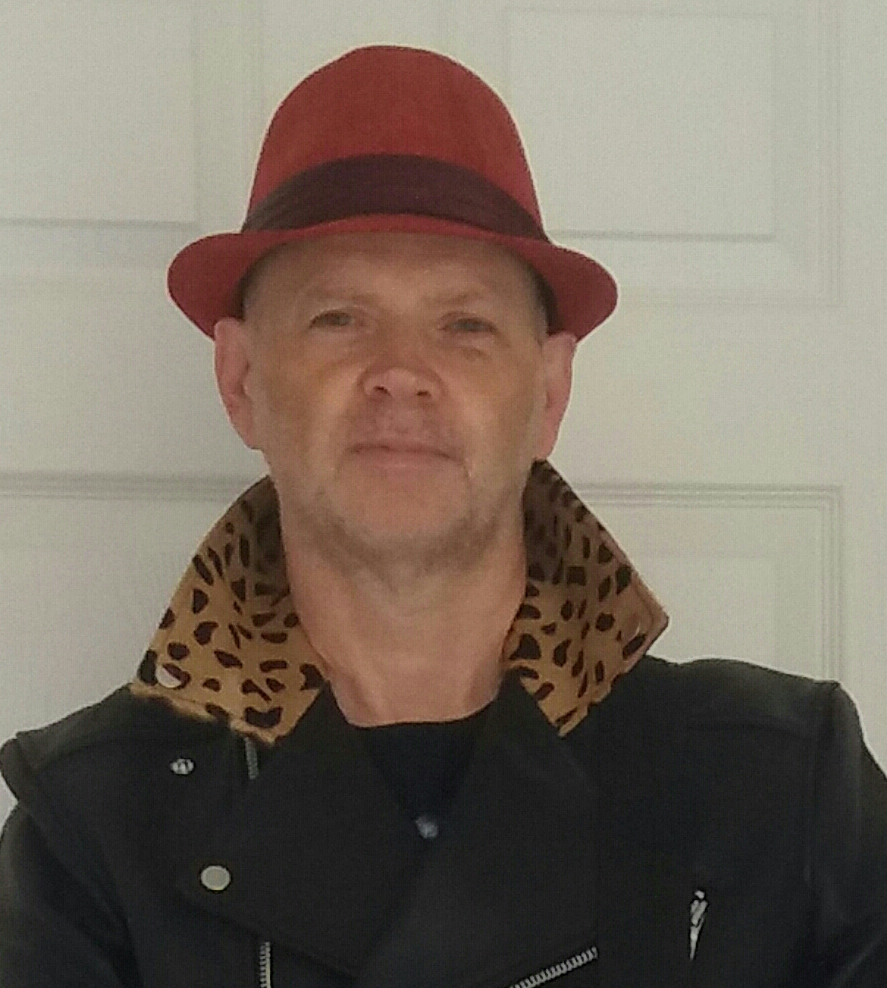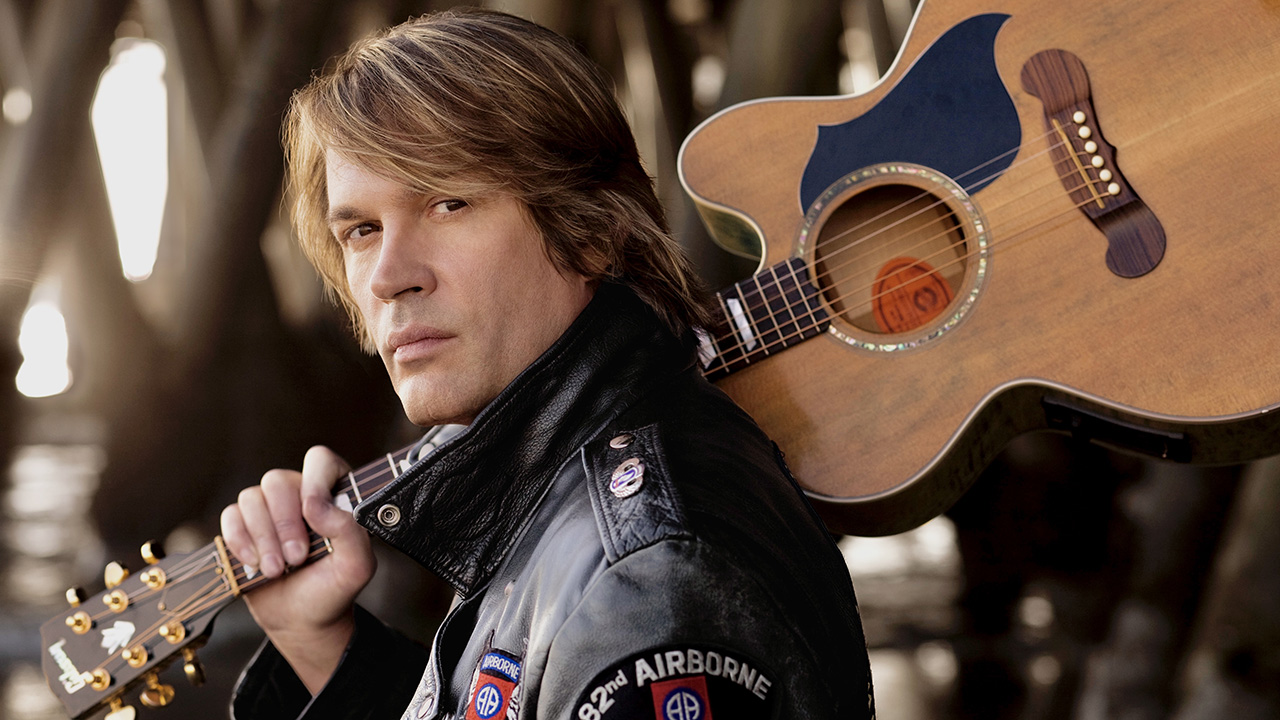“We just tuned to whoever’s guitar sounded most in tune. That’s how green we were in the studio!” Jake Burns on Wilko Johnson, mistranslations, and Stiff Little Fingers’ punk classic, Inflammable Material
Stiff Little Fingers set the world alight on their 1979 debut album, bringing the sound of Belfast punk to the world and working through troubled times with high-volume guitar

Inflammable Material, the incendiary 1979 debut album from Northern Irish punks Stiff Little Fingers, is one of only a handful of truly essential albums from the era. Packed full of instant classics, it features many songs that still appear in the band’s live set, including the anthemic Alternative Ulster, plus Suspect Device, and Wasted Life.
We asked singer/guitarist Jake Burns – the only constant member of the band’s lineup since their formation (although original bass player Ali McMordie has since returned to the fold) – to give us the lowdown on how the album was made. It went a bit like this…
Did you have a lot of songs on hand when you went in to record Inflammable Material?
“No, we literally went into the studio and recorded our live set. We didn’t have anything else on hand at all except one song that we didn’t like. The whole thing was done in 10 days – mostly live with just a couple of overdubs. We’d been playing the songs live for a while, so we were already really tight as a band.
“Geoff Travis and Mayo Thompson were officially ‘producing’ the record, but they didn’t know what they were doing in terms of production, really, and we certainly didn’t. It was very much the blind leading the blind, but that made it very exciting.
“It was all about the quality of the songs. We didn’t spend a lot of money getting a glossy production or anything. We didn’t even use a tuner, so I’m guessing a lot of the songs probably aren’t in concert pitch. We just tuned to whoever’s guitar sounded most in tune. [Laughs] That’s how green we were in the studio.”
What was the writing process between you and Gordon Ogilvie, who co-wrote a number of key songs and was also your manager?
All the latest guitar news, interviews, lessons, reviews, deals and more, direct to your inbox!
“It’s not the way it was painted in the media at the time, where they tried to imply that Gordon was some kind of Svengali figure, because he was a few years older than us. We just connected really well, and sometimes he’d have an idea that would spark a song, or maybe I’d suggest something.
The first time we played in America, a girl said to us that she really loved that song about shooting drugs up – ‘setting your arm alight.’ I had to tell her it was an Armalite rifle
“We used to joke about the whole Svengali rubbish. He became our manager, which was our idea and not his, as he seemed to have a bit of what it takes – he seemed sensible. [Laughs] He was the world’s most reluctant rock band manager ever.
“There are songs where we share a writing credit, such as Alternative Ulster, where it was just one line that he came up with. There were other songs where he’d come up with a lot of the lyrics. There was no real hard and fast rule to how we wrote together.”
Alternative Ulster has one of the most distinctive riffs of the punk era. Did you know the song had a touch of magic when you recorded it?
“No, not at all. It was written for the fanzine of the same name. They’d given us some support, and Gavin Martin, who ran the fanzine, asked if we could give them Suspect Device as a flexi-disc to give away with the magazine, but we said it was due to be a single on our own label. So I said I’d write a song for them, and I came up with Alternative Ulster.
We played Alternative Ulster at a show, I asked Gavin what he thought, and he said he thought it was shit
“We played it at a show, I asked Gavin what he thought, and he said he thought it was shit. [Laughs] We were a little crestfallen – I remember saying to the guys that I felt it was pretty good and, of course, it’s probably our most beloved song. The version you hear on the record was recorded as a demo for Island Records, who almost signed us. We just recorded it as we did it live, and Ed Hollis, the producer, said we needed to double up the guitars.
“Of course, there was no click or count-in for the riff, so I had no way of knowing when it was about to start to try to double it. [Laughs] I had to totally guess where the first guitar came in – it took forever to try to get the second guitar close to the first guitar.”
Barbed Wire Love has, surprisingly, become a perennial favorite, considering that it was all done a bit tongue-in-cheek.
“I know; it was done as a bit of light relief, just to see if we could pull off those doo-wop harmonies, which sounded pretty good in the studio. We tried to come up with as many bad puns as we could, and somehow it’s become a song that the fans love to sing along with.
“We were a rock ’n’ roll band and it was supposed to be fun. We were really just taking the piss out of ourselves, as people were saying we were po-faced and just singing about the Troubles in Belfast. The first time we played in America, a girl said to us that she really loved that song about shooting drugs up – ‘setting your arm alight.’ I had to tell her it was an Armalite rifle. [Laughs]”
Most of the time we’d just both be playing the same inversions of chords. I think that was actually part of the sound – it was like the way that bands double-track rhythm guitar
How did you divide guitar parts with Henry Cluney?
“We literally played the same thing as each other. I was, effectively, the lead guitarist, but most of the time we’d just both be playing the same inversions of chords. I think that was actually part of the sound; it was like the way that bands double-track rhythm guitar parts on record to thicken things up.
“The lead parts were very much worked out in advance as counter-melodies, as I wasn’t the world’s most inventive guitarist. It made it very powerful live, almost a Ramones kind of mindset of powering through the chords. I guess it made it a little one-dimensional – on the next album we started looking at the idea of different inversions to a degree. It was very basic.”
What were the electric guitars and amps that you used?
“I had an Antoria Les Paul copy that cost about $200 – that was my first decent guitar. Prior to that I had a Woolworths guitar, an Audition, that cost about $20, that was a nightmare to play. Henry had a Kimbara Strat copy that was probably about the same price as the Antoria.
“I plugged into a Marshall amp in the studio that was already there. I don’t know what model, but it was ancient, and it was 50 watts. It distorted and sounded great and that was good enough for me. I can’t remember what Henry used for the life of me.” [Editor's note: Cluney tells us it was a Phoenix – "an awful plastic thing," he says.]
What got you into playing?
“Rory Gallagher, initially. I was 11 when I saw a Taste farewell concert on TV in Northern Ireland. This noise came from the TV, and it transfixed me; I just sat there with eyes like saucers. I decided there and then that I wanted to be Rory Gallagher. I had to badger my parents for a couple of years for a guitar.
“They did buy me On the Boards, the Taste album, but that just made me worse. This would have been about 1969/70. I bought Led Zeppelin II for Christmas that year. It was the perfect time for someone who really wanted to get into guitars; there were so many guitar heroes coming through.
“I was really into bands like Deep Purple, but then Dr. Feelgood came along, and Wilko Johnson was it. There was nothing like Dr. Feelgood before they came along – the image, the songs, Wilko’s unique style. I’d got tired of the long, virtuoso soloing of heavy rock, and the Feelgoods seemed to be the very thing, shortly followed by all the great new punk music that we were listening to. My entire guitar style, for whatever that’s worth, is a mixture of Rory and Wilko.”

Where were you hearing punk music in Northern Ireland? There wasn’t a lot of it there back in 1976 and ’77.
“John Peel’s radio show was where you heard things that you’d read about in the weekly music papers. Bands would be afraid to come over because of the Troubles. Suddenly the Feelgoods, Graham Parker, the Damned and the Stranglers were coming over. Very few people would play there prior to that – except Rory, of course.”
John Peel’s radio show was where you heard things that you’d read about in the weekly music papers. Bands would be afraid to come over because of the Troubles
Listening to it now, how do you feel about Inflammable Material?
“I don’t think I’ve really listened to it for many, many years, except for the odd track if we’re thinking of putting it back into the live set, just to remember how it went. I think it was raw and urgent and conveyed the spirit of who we were really well. I know it always crops up on those ‘essential punk albums’ lists, and I think that’s because there is such an honesty about it and the songs are really strong, except for maybe Closed Groove, which I don’t think really fits in with the rest of the album. I think it sounds rough, I guess.
“We can certainly play the songs so much better now, but that’s a part of the charm and what made the record work at the time – the whole ‘lightning in a bottle’ cliché. It was of its time – the four guys in the studio. A good song is a good song – it doesn’t really matter how well a song is recorded if you’re not starting out with a good tune.”
What’s coming up?
“We’ve got nearly enough songs together for a new album, so that’s in the pipeline. We’re touring the U.S. and U.K. through 2024. I guess my voice isn’t quite as raw as it used to be as I learnt how to sing. [Laughs] We’re still having fun; you can moan about the travel and everything, but the moment you walk on stage, you remember why you’re doing this.
“If a crowd ever seems a little lukewarm, I can look down at the set list and think about what great songs we’ve got coming up. Of course, then I think to myself, ‘If they don’t work, then we’re really fucked.’ [Laughs]”
- Have an idea for a Lost Classics interview? Let us know at gwsoundingboard@futurenet.com. Operators are standing by! (Sort of...)
- For a full list of Stiff Little Fingers' tour dates, visit the band's website.
Mark is a freelance writer with particular expertise in the fields of ‘70s glam, punk, rockabilly and classic ‘50s rock and roll. He sings and plays guitar in his own musical project, Star Studded Sham, which has been described as sounding like the hits of T. Rex and Slade as played by Johnny Thunders. He had several indie hits with his band, Private Sector and has worked with a host of UK punk luminaries. Mark also presents themed radio shows for Generating Steam Heat. He has just completed his first novel, The Bulletproof Truth, and is currently working on the sequel.





